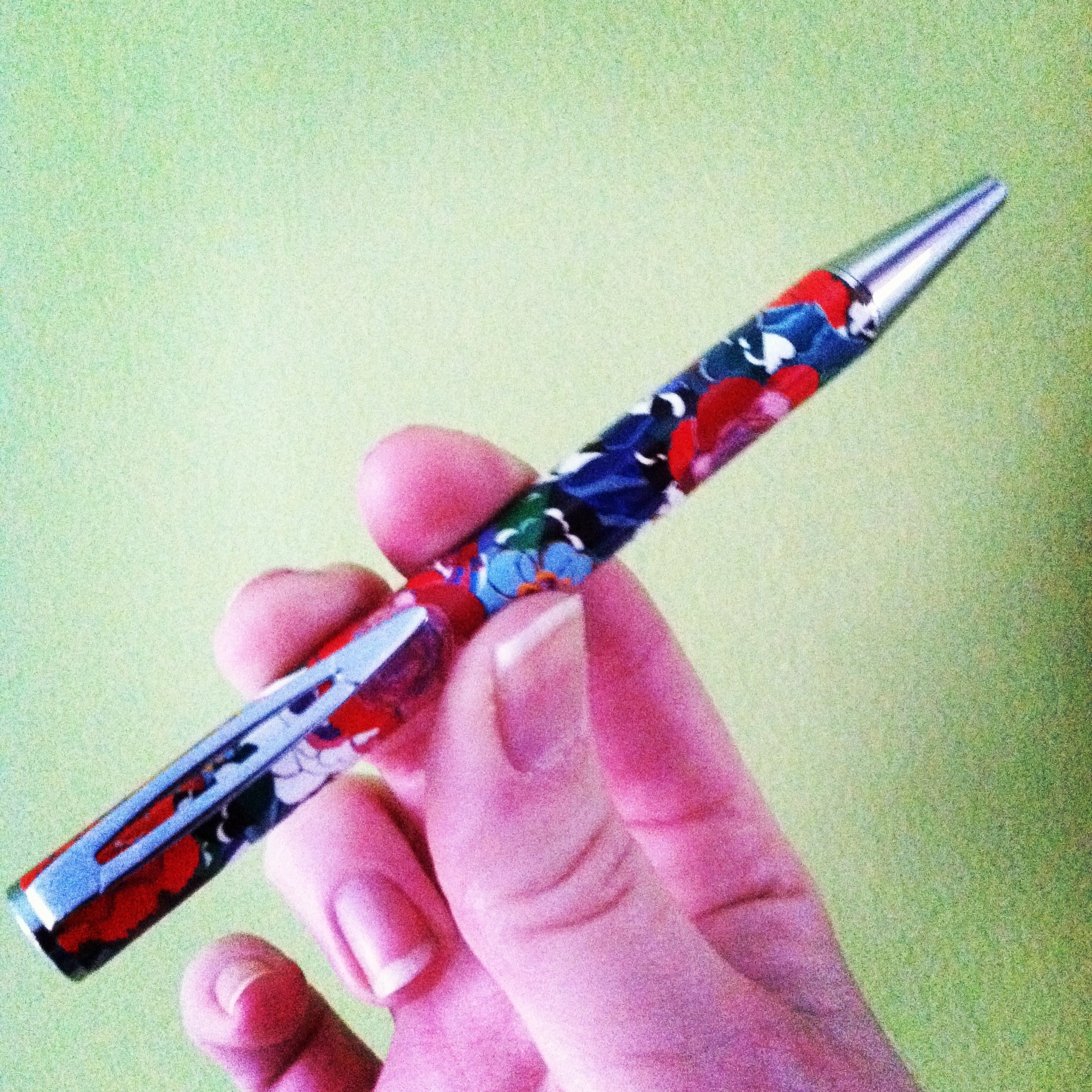News!
The official release date was tomorrow, but I’m told that my book, Beware the Hawk, is already available on Amazon.* There will still be a lot of hubbub tomorrow – I’m starting my blog tour over at WordVagabond and the book will be available at Vagabondage Press (no relation), but this is like a soft opening.

A mentor gave me this pen to use at my very first book signing. I was bummed that I wouldn't be able to use it - until now.
So, for those who have asked, Beware the Hawk is an e-book. This is awesome for lots of reasons – it’s easy to download, it stays in print forever, it doesn’t weigh anything and it’s not killing trees. In short, it’s kinda made of magic. But one thing you can’t do with an e-book? You can’t sign it.
That’s a bummer, because book signings are fun. One of my writers’ groups once published an anthology and held a book signing and it was amazing. I could have signed books all night. I considered coming home and signing every book in my bookshelves, but luckily my roommate at the time, (who was also in the writers’ group, but who also had books on the shelves that she probably didn’t want me to deface) distracted me.
I digress.
Anyhow, I was sort of saddened by the fact that there would be no book signing at first, and then, during a conversation on Facebook, I realized that I don’t need to have a physical book to have a signing. In fact I don’t even need to be in the same room with everyone to have a signing. Here’s the deal.
From now until next Monday (Jan. 23, 2012), people who buy the book can send me an email with their mailing address. I’ll send you an autographed Post-It that you can put on your Kindle, Nook or computer while you’re reading my book. Not very fancy, perhaps, but who doesn’t like getting mail that’s not a bill?
So, if you want your autograph, send your mailing addresses to annjoconnell<at>gmail<dot>com. (Just until Jan. 23. Because this week is a special week.)
Then keep an eye on that mailbox. Now, if only I could figure out how to do a virtual reading.
* If you want to help a woman out, get it from the Vagabondage Press site. Both the publishers and I get better royalties and you get the book in three formats. Also, why reward Amazon for releasing the book early?

